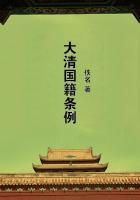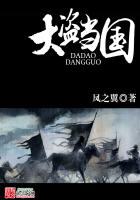Some lines near the end of the poem are singularly graceful and touching, and sank deep into the heart of Congreve.
"Already am I worn with cares and age, And just abandoning the ungrateful stage But you, whom every Muse and Grace adorn, Whom I foresee to better fortune born, Be kind to my remains; and oh, defend Against your judgment your departed friend.
Let not the insulting foe my fame pursue, But guard those laurels which descend to you."
The crowd, as usual, gradually came over to the opinion of the men of note; and the Double Dealer was before long quite as much admired, though perhaps never so much liked, as the Old Bachelor.
In 1695 appeared Love for Love, superior both in wit and in scenic effect to either of the preceding plays. It was performed at a new theatre which Betterton and some other actors, disgusted by the treatment which they had received in Drury Lane, had just opened in a tennis-court near Lincoln's Inn. Scarcely any comedy within the memory of the oldest man had been equally successful.
The actors were so elated that they gave Congreve a share in their theatre; and he promised in return to furnish them with a play every year, if his health would permit. Two years passed, however, before he produced the Mourning Bride, a play which, paltry as it is when compared, we do not say, with Lear or Macbeth, but with the best dramas of Massinger and Ford, stands very high among the tragedies of the age in which it was written.
To find anything so good we must go twelve years back to Venice Preserved, or six years forward to the Fair Penitent. The noble passage which Johnson, both in writing and in conversation, extolled above any other in the English drama, has suffered greatly in the public estimation from the extravagance of his praise. Had he contented himself with saying that it was finer than anything in the tragedies of Dryden, Otway, Lee, Rowe, Southern, Hughes, and Addison, than anything, in short, that had been written for the stage since the days of Charles the First, he would not have been in the wrong.
The success of the Mourning Bride was even greater than that of Love for Love. Congreve was now allowed to be the first tragic as well as the first comic dramatist of his time; and all this at twenty-seven. We believe that no English writer except Lord Byron has, at so early an age, stood so high in the estimation of his contemporaries.
At this time took place an event which deserves, in our opinion, a very different sort of notice from that which has been bestowed on it by Mr. Leigh Hunt. The nation had now nearly recovered from the demoralising effect of the Puritan austerity. The gloomy follies of the reign of the Saints were but faintly remembered.
The evils produced by profaneness and debauchery were recent and glaring. The Court, since the Revolution, had ceased to patronise licentiousness. Mary was strictly pious; and the vices of the cold, stern, and silent William, were not obtruded on the public eye. Discountenanced by the Government, and failing in the favour of the people, the profligacy of the Restoration still maintained its ground in some parts of society. Its strongholds were the places where men of wit and fashion congregated, and above all, the theatres. At this conjuncture arose a great reformer whom, widely as we differ from him in many important points, we can never mention without respect.
JEREMY COLLIER was a clergyman of the Church of England, bred at Cambridge. His talents and attainments were such as might have been expected to raise him to the highest honours of his profession. He had an extensive knowledge of books; yet he had mingled much with polite society, and is said not to have wanted either grace or vivacity in conversation.
There were few branches of literature to which he had not paid some attention. But ecclesiastical antiquity was his favourite study. In religious opinions he belonged to that section of the Church of England which lies furthest from Geneva and nearest to Rome. His notions touching Episcopal government, holy orders, the efficacy of the sacraments, the authority of the Fathers, the guilt of schism, the importance of vestments, ceremonies, and solemn days, differed little from those which are now held by Dr.















